2023 Participant Milestones Spotlight: Energy New England

Our 2023 participant, Energy New England (ENE), is the leading wholesale risk management and energy trading organization in the Northeast and has made significant strides in the clean energy and electrification sectors. As a champion of sustainable energy solutions, ENE is not just about managing risks and trading energy; it is paving the way for […]
2023 Participant Milestones Spotlight: Bridgewater State University
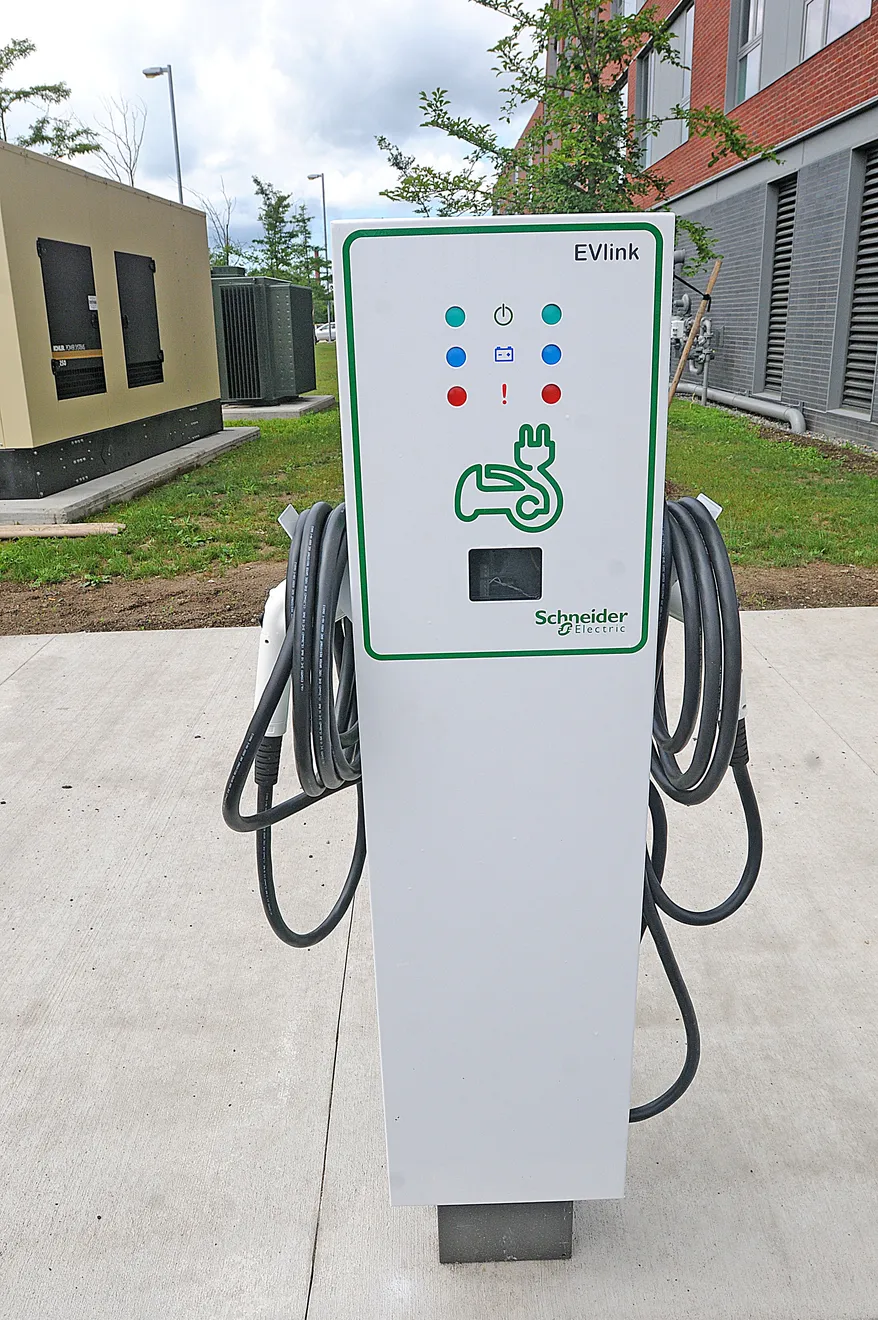
In an era where innovation drives progress, our 2023 participant Bridgewater State University (BSU), the largest of Massachusetts’ nine state universities, is setting a remarkable example in the realm of sustainable energy and electric vehicles (EVs). With a series of initiatives throughout 2023, BSU has not only embraced electrification but has also embarked on a […]
Participant Milestones Spotlight: Cape Air
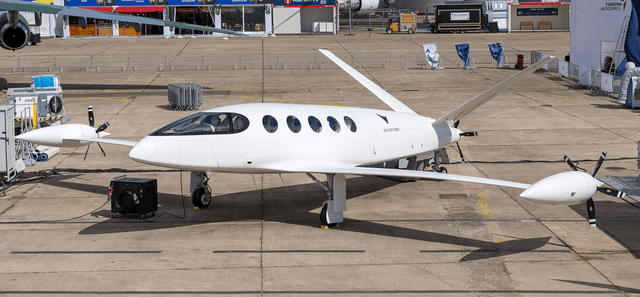
Cape Air, a trailblazer in regional air travel with its headquarters at Cape Cod Gateway Airport in Hyannis, Massachusetts, is taking significant strides toward integrating electric vehicles (EVs) and clean energy solutions into its operations, now extending EV efforts to Maine, New York, Vermont, Illinois, Michigan, Montana, and Puerto Rico. Last year our 2023 participant, […]
2023 Participant Milestones Spotlight: Town of Truro
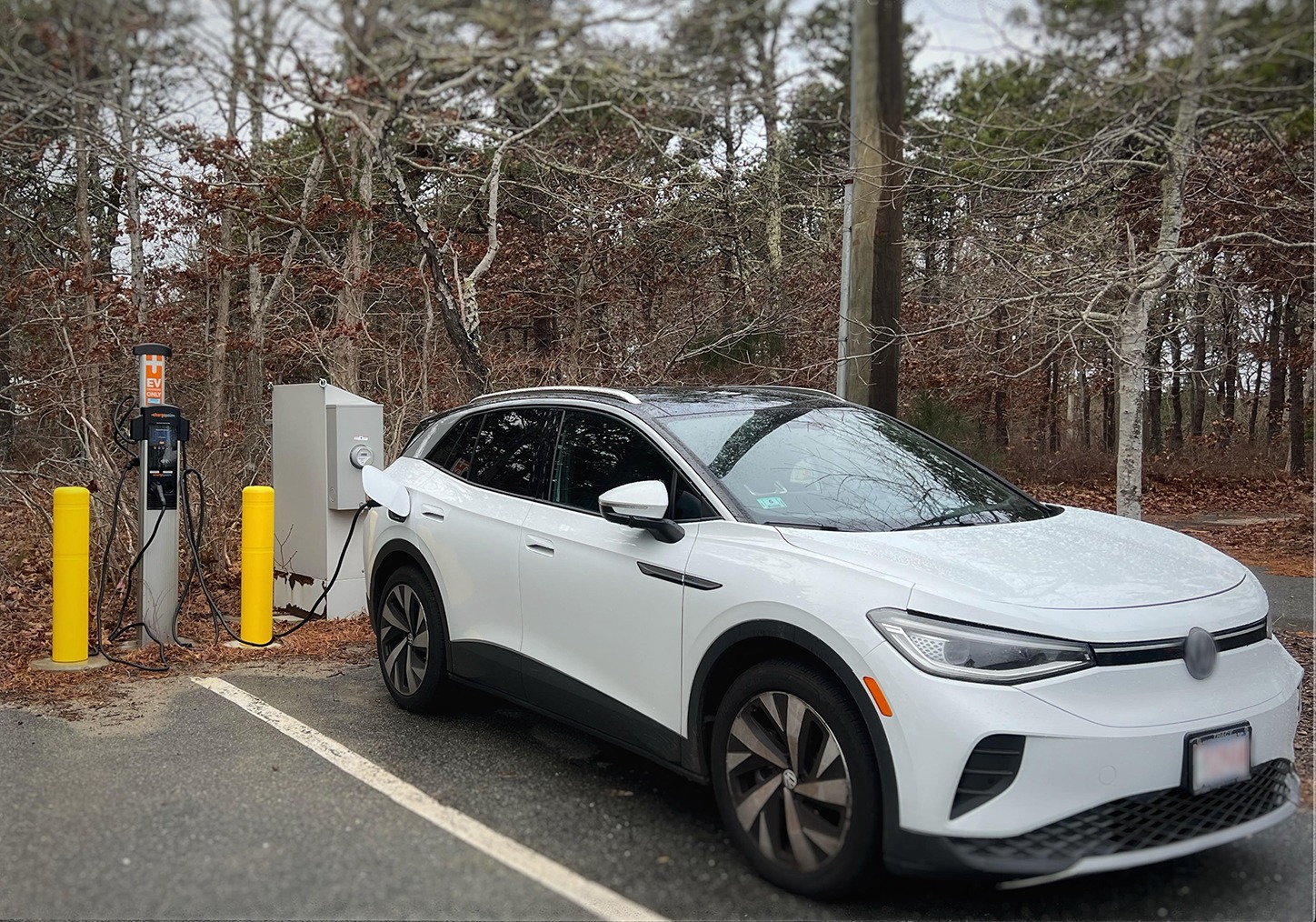
Located in Barnstable County, Massachusetts, the Town of Truro is about two hours outside of Boston. With its inviting beaches and vibrant community spirit, this small town of +2,000 residents is making significant strides for beneficial electrification. In 2023, with 5.6% of registered vehicles being non-fossil fuel vehicles in Truro, the town made strides in […]
2023 Participant Milestones Spotlight: UMass Chan Medical School
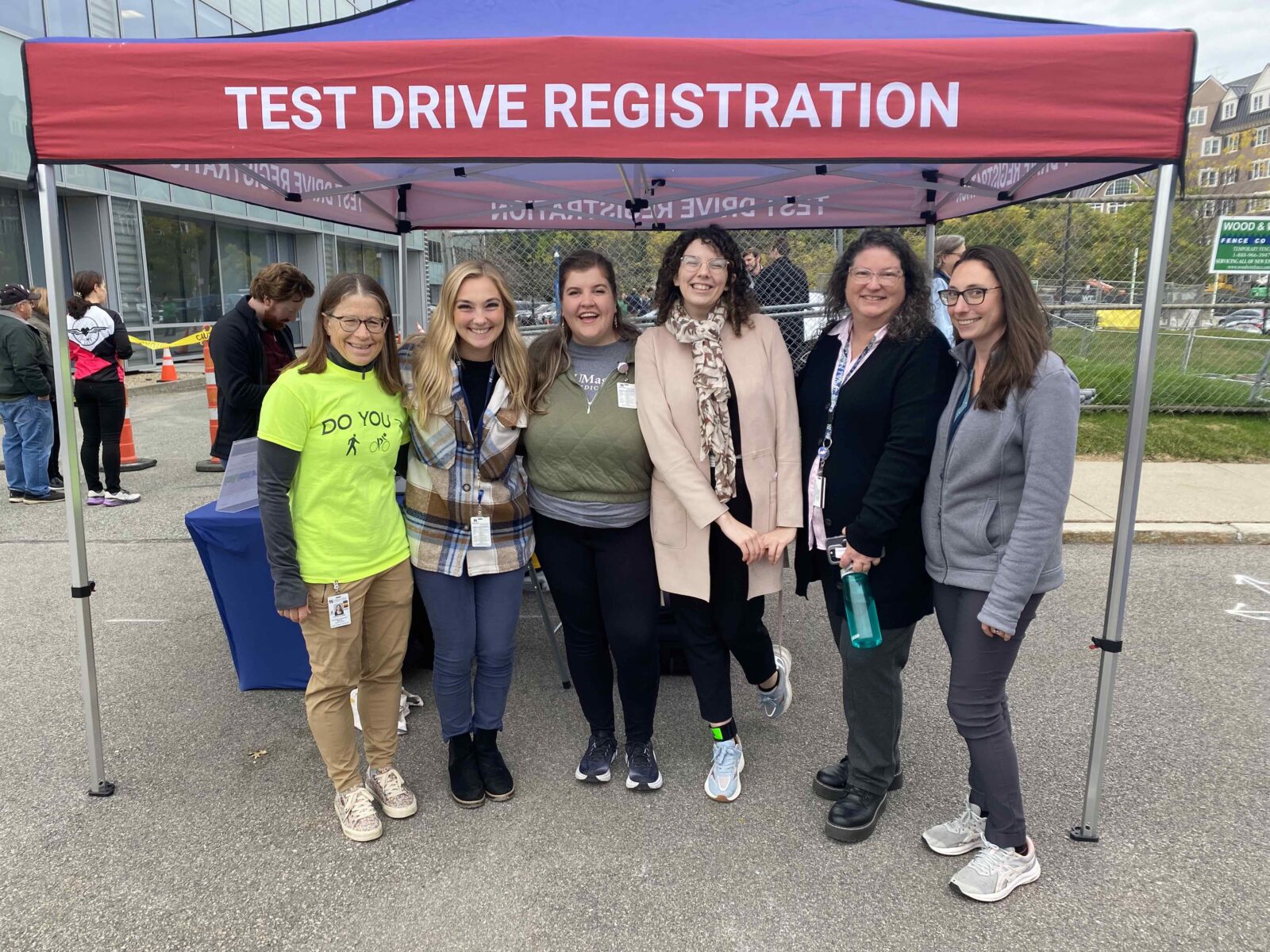
Last year, UMass Chan Medical School took remarkable steps toward sustainability and clean energy, underscoring its commitment to innovation not only in education and healthcare but also in environmental stewardship. Located in Worcester and part of the University of Massachusetts system, UMass Chan stands at the forefront of integrating sustainable practices within its operations. The […]
2023 Participant Milestones: MnDOT
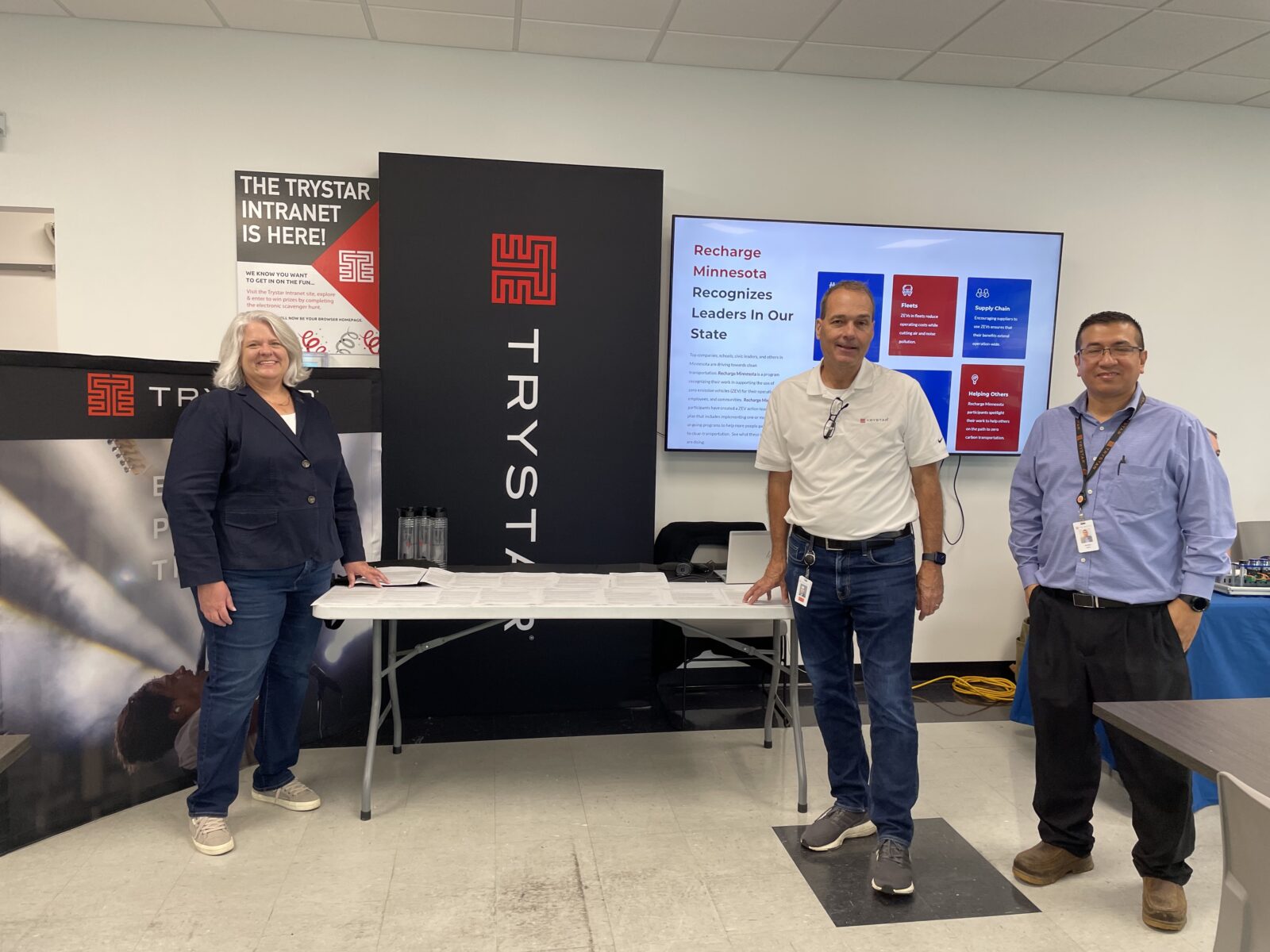
2023 Participant Milestones Spotlight: Minnesota Department of Transportation’s Journey In the spotlight for their remarkable achievements throughout 2023, our participant the Minnesota Department of Transportation (MnDOT) stands as a model of progress in the area of environmental sustainability. This year, MnDOT has not only expanded its fleet by adding 5-10 electric vehicles (EVs) but also […]
ElectriFUN Faribault: Not Your Average EVent!
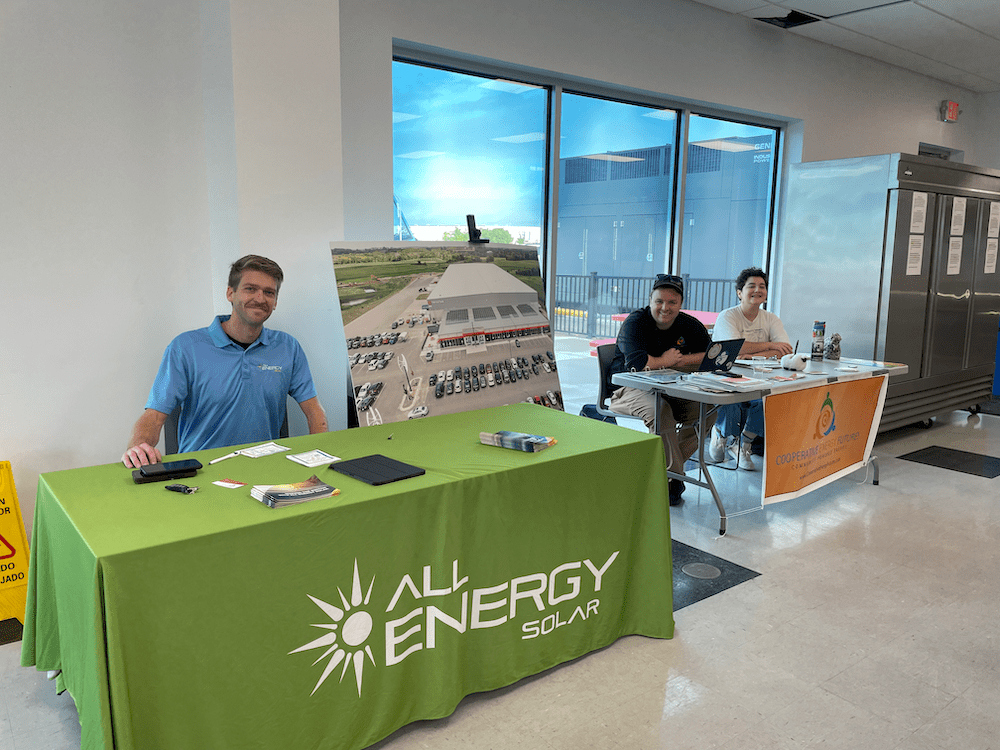
Despite threatening weather in the morning, approximately 150 people turned out at Trystar in Faribault, MN, to experience EVs and energy solutions of all kinds! Trystar’s newly-expanded facility manufactures wires, conduit and other electrical components for the mass distribution of electricity. They incorporated a large solar array into the additional space, allowing them to operate […]
Black Economic Council of Massachusetts (BECMA) Hosts the Mass Black Expo

Runs October 6-8 at the Boston Convention and Exhibition Center One of our core values at Recharge America is that people of all backgrounds should have access to the innovations and emerging technologies that make the world more sustainable and more livable. BECMA is one of our newest Participants in Massachusetts, and they’re already a […]
Energy City Indeed: Recharge Elk River
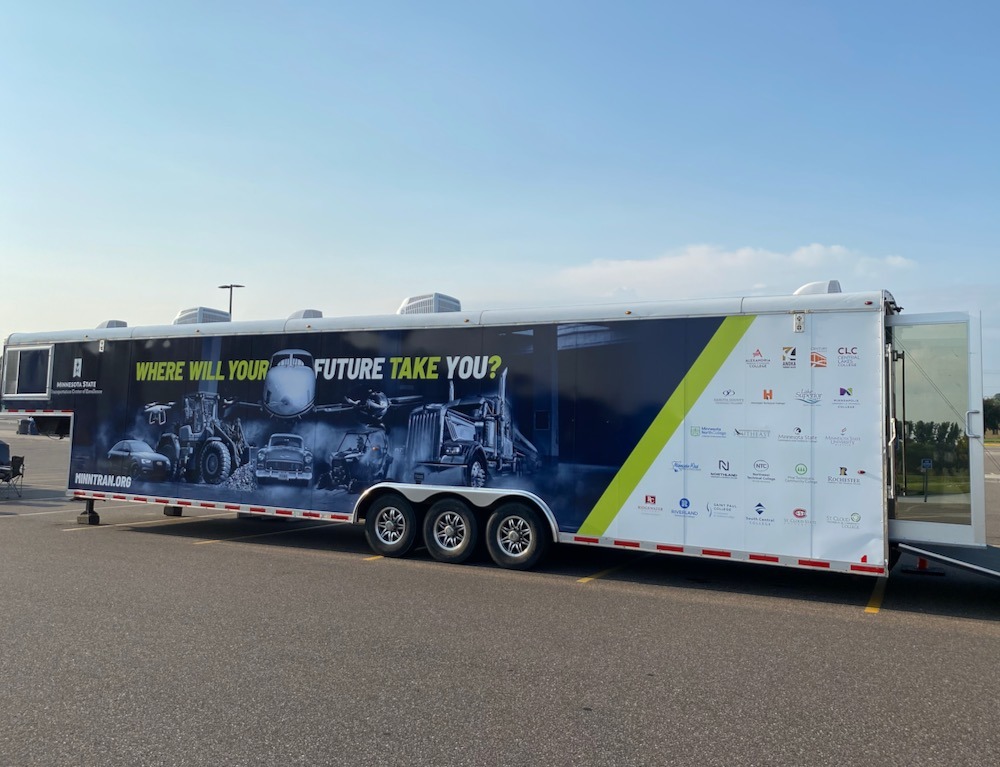
Around 250 attendees from Elk River and the surrounding area came out on August 5 to test out EVs and e-bikes! The event at the Furniture and Things Community Event Center took place on one of the best weather days in awhile, offering perfect conditions for family fun. The steering committee — which included the […]
Successful Recharge Massachusetts Event on Cape Cod
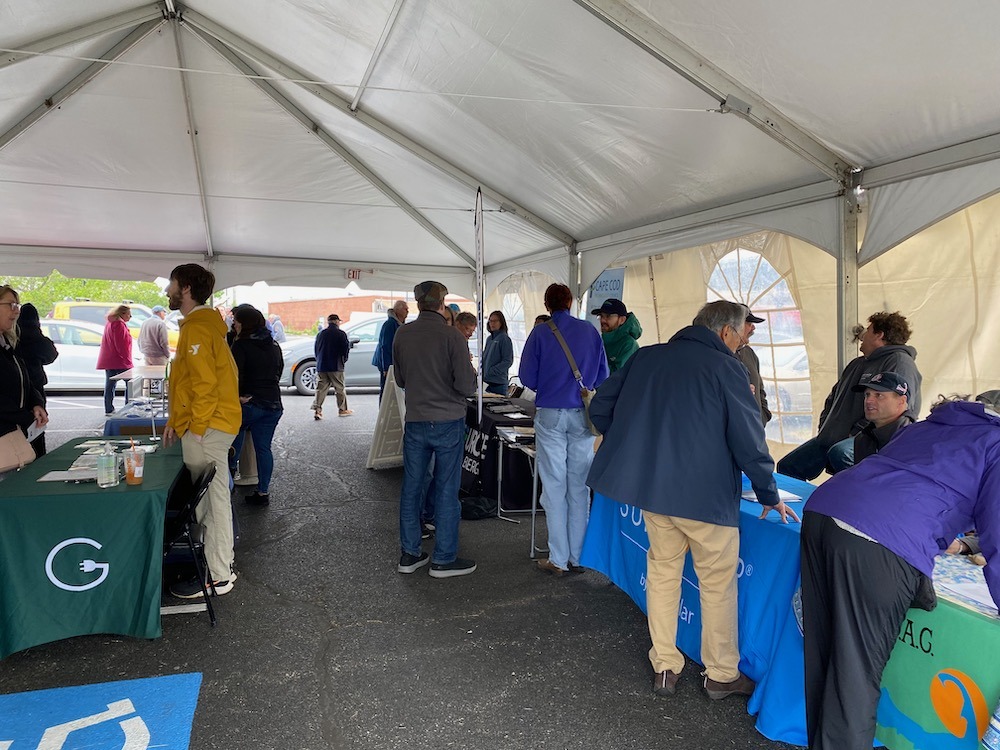
Recharge Massachusetts held a very successful event at the Hyannis Transportation Center (HTC) on June 3! With test drive cars from Tesla, Ford, VW, Chevy, Toyota, and Lucid, plus showcase cars from both dealers and private owners, the attendees had a wide range of options for learning about EVs. The parking lot also served as […]
